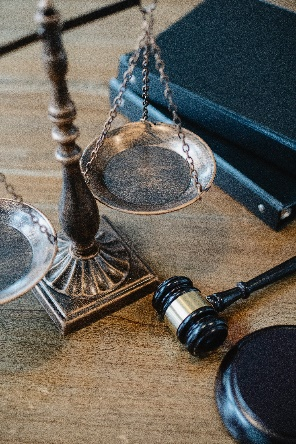This website uses cookies so that we can provide you with the best user experience possible. Cookie information is stored in your browser and performs functions such as recognising you when you return to our website and helping our team to understand which sections of the website you find most interesting and useful.
Guidelines for the new patent opposition procedure in France (5/5): Decision & Appeal
Paris, 19 April, 2021 – In January 2021, the National Institute of Industrial Property (INPI, i.e. the French Patent Office) published its comprehensive guidelines on the patent opposition procedure.
These guidelines are the last stone of a legal edifice, the construction of which began with Article 121 of the PACTE law of May 22, 2019. As a consequence, it is now possible to have a clear view of the procedure.
To mark this occasion, we are publishing a series of five articles throughout which we strive to establish an overview of the main aspects of the opposition procedure, including the issues that remain unresolved.
This series concludes by addressing the final decision rendered by the opposition committee and outlining options following the opposition proceeding.
The decision phase
The decision phase follows the investigation phase, which is discussed in detail in the third and fourth articles of this series. As part of the decision phase, the opposition committee drafts and notifies the parties of its decision. Notification of the decision concludes the opposition proceeding.
If the opposition committee’s decision sides at least in part with the opponent, the patent is either totally revoked, partially revoked, or maintained in amended form (L.613-23-4 of the French Intellectual Property Code (IPC)). If the decision sides entirely with the patent owner, the patent is maintained as granted.
In rare circumstances, which may involve an opposition proceeding involving only a written phase but no oral phase, the opposition committee may fail to issue a decision. If a decision is not issued within four months from the end of the investigation phase, the opposition is deemed to be rejected and the patent is maintained as granted (L.613-23-2 IPC).
What is the difference between partial revocation and maintenance in amended form?

The opposition is said to result in a maintenance in amended form when the decision maintains the patent in accordance with a proposal for amendment submitted by the patent owner.
The only situation of partial revocation identified by the Guidelines appears to apply when the opponent only requested revocation of some, but not all, claims of the patent, and the patent owner has not filed a request in which those claims are deleted.
The Guidelines do not provide a general explanation, only this particular example (B, 3.3.2.b.). It appears that this is the counterpart of total revocation where the opponent has not requested revocation of the entire patent. However, this will have to be confirmed by case law.
In case of partial revocation, the patent owner is referred back to the INPI to request amendment of his patent in accordance with the decision of partial revocation when the decision is no longer subject to appeal (L.613-23-6 IPC). The patent owner does not have a time limit for requesting amendment (Guidelines B, 3.4.2.), but no enforcement of the patent is possible until the patent has been brought into conformity with the opposition decision.
Allocation of costs
The general rule is that each party will bear its own costs during the opposition (L.613-23-5).
However, the decision may reallocate costs “if equity so requires.” This may be the case when costs normally attributable to one party were the result of negligence or bad faith on the part of the other party. (Guidelines B, 3.3.3.). The Guidelines provide the example of late submissions presented without good cause and resulting in additional costs. This situation seems likely to arise only when the late material was of particular relevance and, therefore, not rejected for its lateness. Case law must be developed in order to clarify when equity would otherwise require reallocation of costs.
The maximum amount to be borne by either party as a result a reallocation of costs is as follows (Guidelines B, 3.3.3.) :
- For costs incurred in the written phase : 600 € max
- For costs incurred in the oral phase : 100 € max
- For representation costs : 500 € max
In view of the foregoing, the degree to which costs can be reallocation appears limited. The value of an appeal on this point alone is expected to be low.
Appeal
An appeal for reversal of the opposition decision is possible before the Paris Court of Appeal (R.411-19 & D.411-19-2 IPC). This appeal brings the entire dispute to the Court’s attention such that the Court can rule on issues of fact and issues of law. On this occasion, the parties may invoke new arguments, produce new documents, or present new evidence (R.411-38 IPC).
The time limit for appeal is one month starting from the receipt of the notification of the decision. (R.411-21 IPC). These time limits are increased by one month for an applicant residing in a French overseas territory and by two months for an applicant residing outside France and its overseas territories (R.411-43 IPC).
In the event of appeal, the appellant has three months to submit his arguments (R.411-29 CPI) to the Court clerk’s office and the Director General of the INPI.
The Guidelines have helped to clarify many things in the opposition procedure, including the conduct of the oral phase. Overall, the guidelines provide a high degree of legal certainty. For some subjects, it will be necessary to wait for an update of the legal texts or their resolution through the case law. In the meantime, Regimbeau is at your disposal to analyse any aspect relating to your cases!

